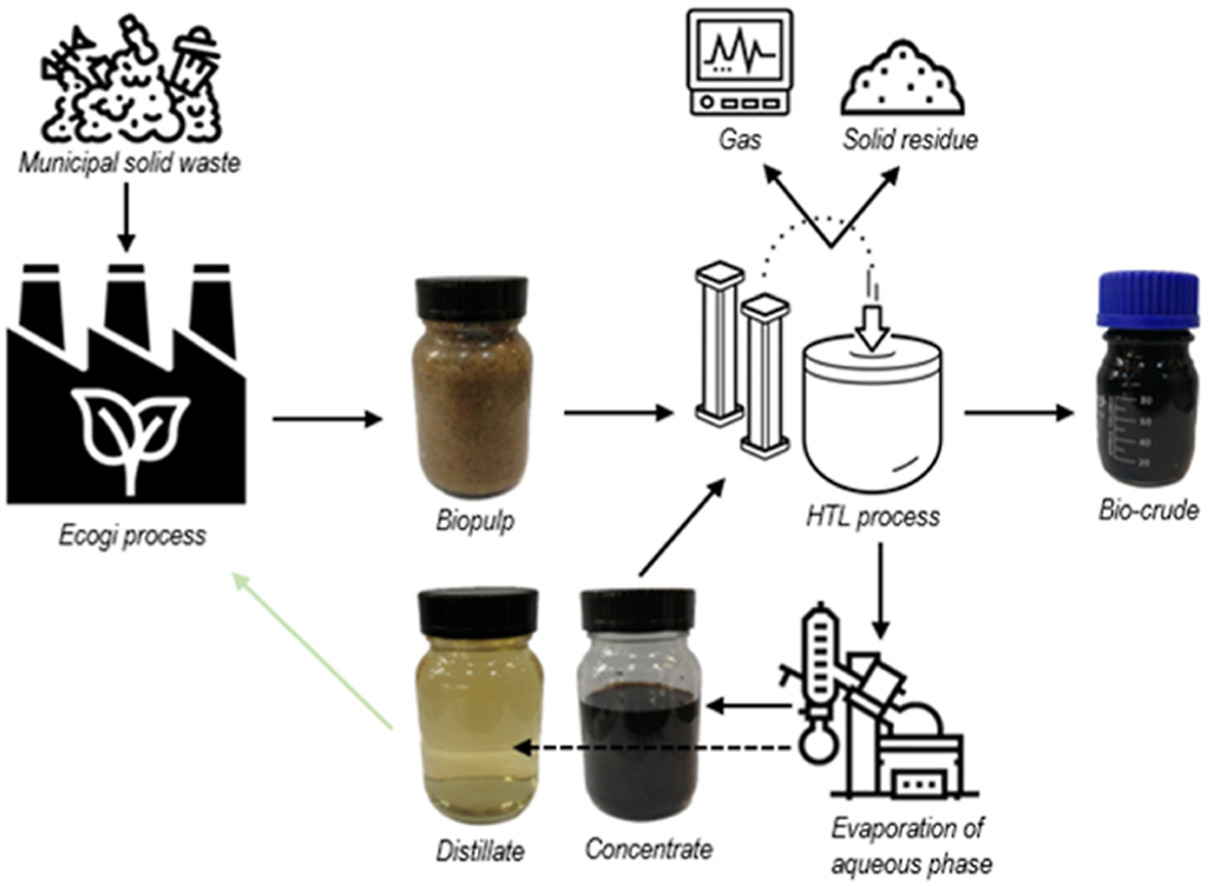
Abstract
This study investigates the integration of a biomass mechanical pretreatment technology and hydrothermal liquefaction for the valorization of biopulp; the organic fraction of municipal solid waste. A preliminary screening of the hydrothermal liquefaction conditions was carried out to investigate the impact of temperature (350 and 400 °C) and the presence of alkali catalyst (K2CO3) during the hydrothermal conversion of biopulp. Sub-critical conditions and the presence of the catalyst were noticed to have a significant positive impact on the energy recovery of the bio-crude. Therefore, the 350 °C-catalytic experiment was deemed as the reference test. To increase the energy recovery in the biocrude, recirculation of the aqueous phase was further investigated. In this case, the obtained aqueous phase was fractionated into a distillate and a concentrate phase. By recirculating the concentrate phase in four consecutive cycles, the bio-crude production yield and energy recovery increased to 49.3% and 84.3%, respectively. Additionally, evaporation of the aqueous phase revealed to have a positive impact on the removal of nitrous compounds (mostly in the form of ammonia) during the fractionation process. In conclusion, the recirculation-assisted HTL of biopulp is an energy efficient process to valorize the organic matter of municipal solid waste.
Authors: Komeil Kohansal, Saqib Toor, Kamaldeep Sharma, Rupa Chand, Lasse Rosendahl, Thomas Helmer Pedersen
Full paper here: https://www.sciencedirect.com/science/article/abs/pii/S0961953421000696
